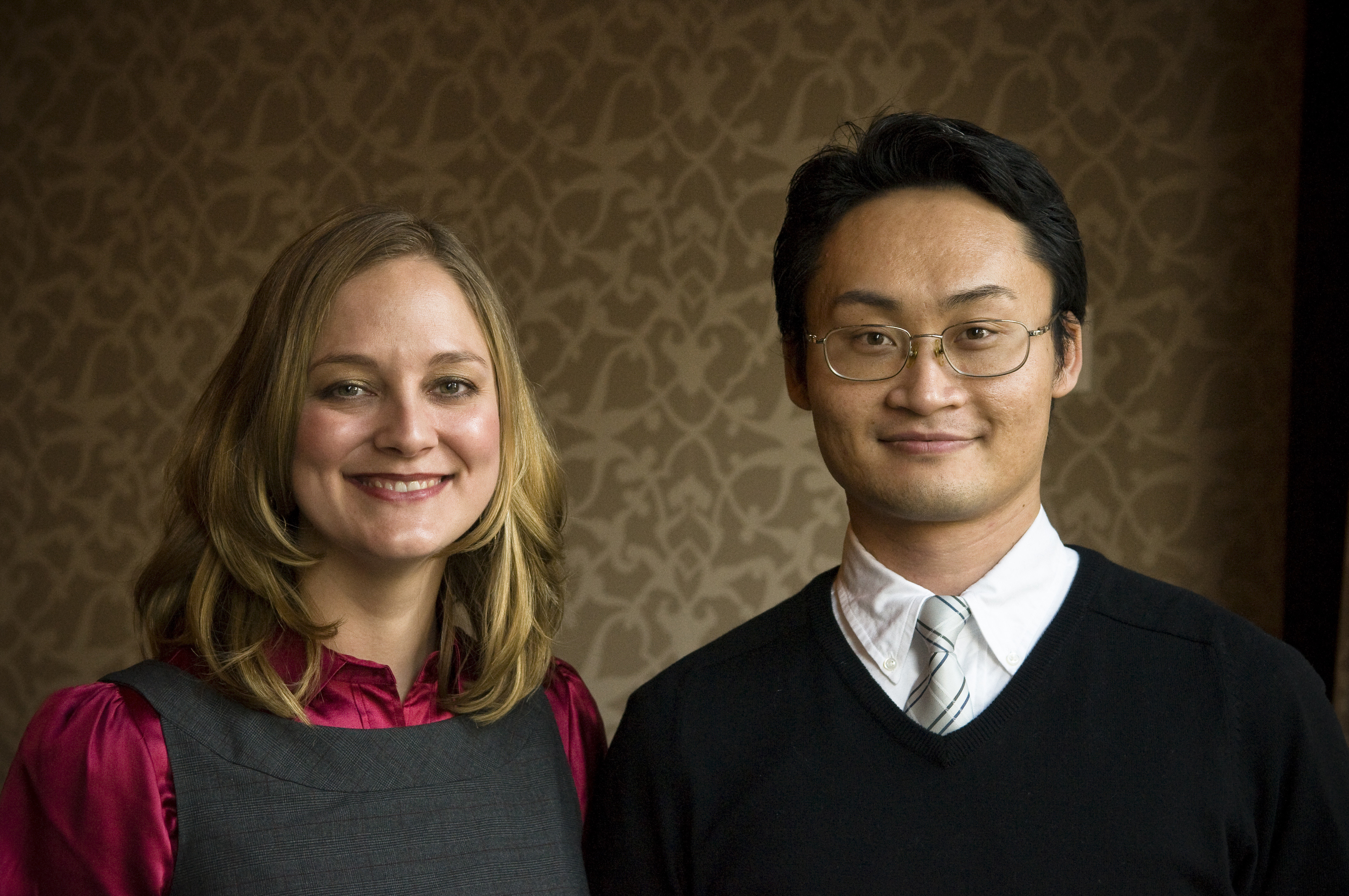Life Science Career Development Series: Two Graduate Students on a Unique Learning Opportunity
By Jim Oldfield
The Life Science Career Development Series (LSCDS) is an annual student-run program supported by the University of Toronto’s faculty of medicine, school of graduate studies, and affiliated teaching hospitals and research institutes, including Sunnybrook Research Institute (SRI). Series organizers present life science students with career info and lore through a seminar series (which kicked off November 20 and runs through 2009); and a networking reception and career day, usually held in February and June, respectively. “Graduate school comes with the idea that you get a PhD, do a postdoc and get an academic job,” says Iris Fung, a fifth-year graduate student in the discipline of molecular and cellular biology (MCB) at SRI and LSCDS executive committee member. “We cover that route, but there are a lot more options out there. The series provides exposure to people who’ve chosen some of those alternatives, so students don’t feel like they’re having to forge their own path all the time.”
Andrea Vaags is a fifth-year graduate student in MCB who studies stem cell biology in the lab of Dr. Margaret Hough; Stephen Chen, also a fifth-year student in MCB, works on angiogenesis in Dr. Dan Dumont’s lab; here, they share their experience with the LSCDS.
For more information, visit the Life Science Career Development Series website.
Which components of the series did you attend?
Vaags: I attended the career day and stayed for the entire event. It’s a very condensed experience, which is good, and there’s a range of topics and sessions on offer, from getting into a clinical research organization through to business operations. I had done career research on academics through U of T’s status of women office, so I focused more on the industry sessions, and they were very worthwhile. I also plan to attend some upcoming seminars; they’re a chance to get more in-depth and spend time on particular career paths.
Chen: I did the career day, the networking session twice and a couple of seminars. I think the series is fantastic, because it really targets life science graduate students. The [U of T] career centre doesn’t provide that kind of life-science-specific career information to us. The career day offers a lot of sessions, and the networking reception gives you a chance to mingle with people from various fields, which isn’t something we normally do as graduate students. The reception is a great opportunity to explore career options by following up with people from the series, and that’s very useful.
What specifics did you take away that were especially useful?
Vaags: Listening to recent grads speak on what they’re doing now was good, but so was hearing from people with years of industry experience—how their careers evolved over time, say, from research to medical information to marketing. The career day keynote on marketing your science by Dr. Tony Redpath [vice-president of partner programs at MaRS] was especially useful. We got an overview of his 30-plus year career in academia, government and business. As PhD students, we are very focused on academics, so we don’t get to see much of what else is out there.
Chen: I’ve been in graduate school for a while now, and I’m becoming very interested in how people with science training contribute to disciplines other than academia such as business, policy and medicine. The seminars give you an insider’s perspective that can help you decide what you want, but also what you don’t want. For example, in the consulting seminar we heard from a consultant, and learned that many of them have to put up with a lot of traveling which can compromise their lifestyle greatly. They could be on the road from Monday to Thursday most weeks, and that’s something you might not be aware of until you talk to consultants.
Did the series affect your view of life science as a chosen area of study?
Vaags: Doing a PhD, you spend so much time at the bench that you can believe you’re only learning to be an academic, but in fact we’re learning a broader skill set—[how to give] presentations, people skills, knowledge of specific diseases—and these can prepare you for a nonacademic but equally interesting and exciting career.
Chen: I agree with Andrea. We tend to forget that we have transferable skills like public speaking and presenting, and we take them for granted. But once you look at other career paths, you realize how much we pick up during grad school. We not only learn the research aspects—how to do experiments, the techniques and basically how to think critically—we also learn the soft skills that are very marketable for graduate students. The training we’re getting here is very helpful in the long run, even though we might not end up in academia, and that’s a very important message for all graduate students.






